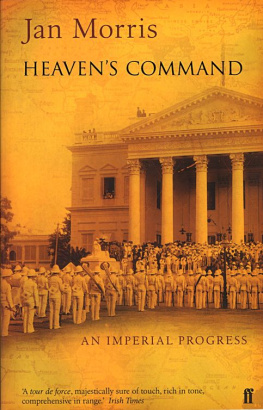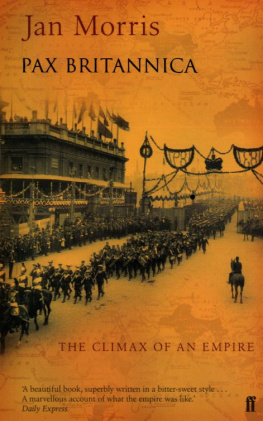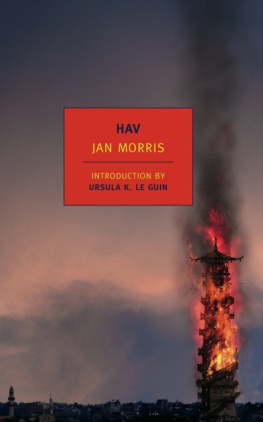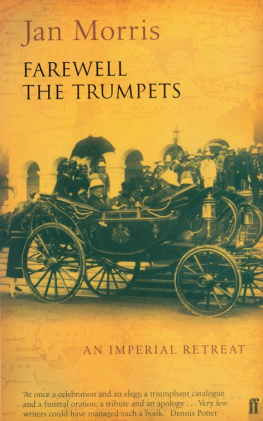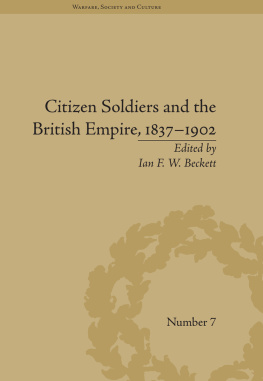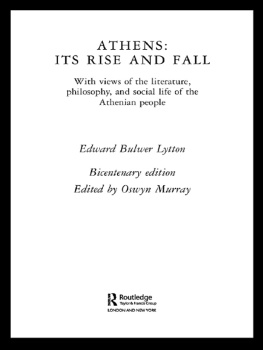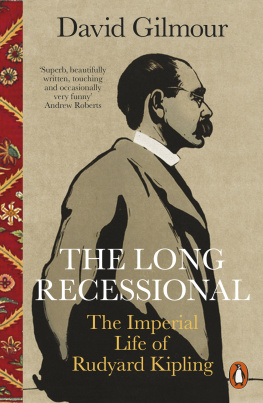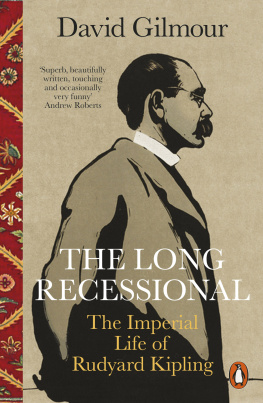Jan Morris - Heavens Command: An Imperial Progress
Here you can read online Jan Morris - Heavens Command: An Imperial Progress full text of the book (entire story) in english for free. Download pdf and epub, get meaning, cover and reviews about this ebook. year: 1999, publisher: Faber & Faber, genre: History. Description of the work, (preface) as well as reviews are available. Best literature library LitArk.com created for fans of good reading and offers a wide selection of genres:
Romance novel
Science fiction
Adventure
Detective
Science
History
Home and family
Prose
Art
Politics
Computer
Non-fiction
Religion
Business
Children
Humor
Choose a favorite category and find really read worthwhile books. Enjoy immersion in the world of imagination, feel the emotions of the characters or learn something new for yourself, make an fascinating discovery.
- Book:Heavens Command: An Imperial Progress
- Author:
- Publisher:Faber & Faber
- Genre:
- Year:1999
- Rating:5 / 5
- Favourites:Add to favourites
- Your mark:
- 100
- 1
- 2
- 3
- 4
- 5
Heavens Command: An Imperial Progress: summary, description and annotation
We offer to read an annotation, description, summary or preface (depends on what the author of the book "Heavens Command: An Imperial Progress" wrote himself). If you haven't found the necessary information about the book — write in the comments, we will try to find it.
Heavens Command: An Imperial Progress — read online for free the complete book (whole text) full work
Below is the text of the book, divided by pages. System saving the place of the last page read, allows you to conveniently read the book "Heavens Command: An Imperial Progress" online for free, without having to search again every time where you left off. Put a bookmark, and you can go to the page where you finished reading at any time.
Font size:
Interval:
Bookmark:
For
HENRY MORRIS
Un-Imperialist
SetinthisstormyNorthernsea,
Queenoftheserestlessfieldsoftide,
England!whatshallmensayof thee,
Beforewhosefeettheworldsdivide?
O SCAR W ILDE
In 1964 I determined to write a trilogy about the rise, climax and fall of the Victorian Empire, of which this is the opening volume self-sufficient in itself, but forming, so to speak, the left-hand panel of a triptych. I presumptuously had posterity in mind. It had occurred to me how fascinating it would be to read a book about the later Roman Empire, written by a former centurion, say, who himself remembering that dominion in the last days of its power had set out to create an evocatively retrospective portrait of it, and at the same time to express something of his own responses to its history and its meaning. Such a book would give us, I thought, a very particular view of history highly subjective of course, but authentically of the period, and illustrating perhaps the sensibility not only of the centurion himself, but of his generation of Romans.
I then set out to write something of the kind about my own empire, the empire of the British, which reached its fulfilment under Queen Victoria; and now that nearly four decades have passed since I first set typewriter to paper (for it was before the days of word-processors), already I see posterity looming up. A new millennium now approaches; a new fin-de-sicle will soon make my use of the phrase ambiguous; a new world, one might almost say, makes the Empire I grew up in almost archaeologically remote. All that being so, this evocation of half-forgotten events, loyalties and excitements may now perhaps be acquiring the relevance I imagined for it in the first place. It is not simply history: it is history seen, and felt, and imagined by someone who lived through the last years of it.
I was born in 1926. I was thus just in time to see the schoolroom maps emblazoned pole to pole in the imperial red; I was in time to witness the immense imperial organism uniting for the last time to fight the greatest war in its history; and I was in time, in 1947, to spend my 21st birthday on a British troop train travelling from Egypt (where the Empire was noticeably not wanted) to Palestine (which the Empire emphatically did not want). For the next fifteen years or so I found myself vocationally engaged in the dissolution of the British Empire, and I watched with mixed feelings the changes that were occurring in Britain itself its loss of power, its shifts of purpose, its adaptations, sometimes skilful, sometimes clumsy and reluctant, to the new balances of the world.
So my mind turned to that other, lost aesthetic, that dream of empire, which had once so seized the imagination of the nation, and was now so remote I saw it as a kind of flare, a blaze in the historical instinct of the British which flamed spectacularly during the nineteenth century between Queen Victorias accession to the throne in 1837, which begins the narrative of this book, and her Diamond Jubilee in 1897, which ends it. It was, as I interpreted it, a yearning among many British people to break out of their gentle northern setting, all greens and greys, into more vivid places, where fortunes could be made, outrageous enterprises undertaken, and the restrictive rules of scale and conduct flamboyantly disregarded. These impulses were by no means always altruistic, and were often brutal. If my book seems to display a certain sympathy for them, that is because I am a child of my times, and most of my generation have probably felt a little like that sometimes: just as that centurion of mine, I do not doubt, however tender the circumstances of his retirement, would have looked back upon the arrogant march of the legions with comradely understanding.
I dedicated the volumes of the trilogy separately; but I offer the whole work to ELIZABETH MORRIS, herself a child of Empire, as an expression of my profoundest love, gratitude and admiration.
TREFAN MORYS, 1998
WhenBritainfirst,atHeavenscommand,
Arosefromouttheazuremain,
Thiswasthecharteroftheland,
Andguardianangelssungthestrain:
Rule,Britannia,rulethewaves;
Britonsneverwillbeslaves.
J AMES T HOMSON
I N October 1837 the Honourable Emily Eden, a witty and accomplished Englishwoman in her forty-first year, was accompanying her brother Lord Auckland, Governor-General of India, on an official progress up-country from Calcutta. Lord Auckland was homesick, but his sister was irrepressibly entertained by everything she saw, and she recorded all her impressions in vivacious letters home. She was anything but innocent or provincial. She was born in Old Palace Yard, within sight of Parliament at Westminster, and had lived always near the centre of English power. Her father had been Postmaster-General and President of the Board of Trade, her eldest sister Eleanor had been the only true love of the younger Pitt, and she herself was an intimate friend of Lord Melbourne the Prime Minister. She was accordingly amused rather than awed by the scale and grandeur of His Excellencys company.
They travelled sometimes by steamer up the rivers which were the principal highways of India, sometimes on camel-back, in palanquins or in elephant howdahs, and they did it with theatrical display. The gubernatorial caravan numbered some 12,000 souls, with hundreds of animals and wagons, and when they stopped for the night a city of tents sprang up, bustling and teeming about Lord Aucklands quarters, with its own bazaars and workshops and stables, its farriers and its wheelwrights, its redcoat sentries, its aides and commissaries, its delegations of local magistrates or doctors or commanding officers, its gaudy emissaries from maharajahs of the country, its rituals of presentation or official entertainment, its camp fires, its hurrying orderlies, its myriad ragged camp followers, its bugle calls at dusk, its smells of spice and woodsmoke and leather and sweat, all under the Union Jack on its great flagstaff beneath the terrific Indian sky. Sometimes it took three days for the cortge to cross a river; the pet dogs of the Europeans wore red coats on the march; when the King of Oudh kindly sent his own cook along to accompany the progress, and Lord Auckland was served a succession of highly spiced pilafs and curries, St Cloup the Governor-Generals own chef, who had once been cook to the Prince of Orange, was predictably affronted.
This was the manner of the British in India, where the East India Company had been active for nearly 200 years, first as a trading organization, then as an instrument of supremacy. It was a half-oriental manner, inherited from the Moghuls, intended to overawe the indigenes and perhaps give the Companys officials a proper sense of their own authority. Miss Eden, who had been in India for two years, and was accustomed to different styles of consequence, found it faintly comic. Her letters show no awareness of majesty. The Governor-General is, after all, only her diffident brother George, pining for a decent inn. His grand officials, advisers and aides are only upper middle class Englishmen, accompanied by gossipy wives, squirmy children and ludicrously cossetted pets. Miss Eden is not moved by the power, or the responsibility, or even the historical continuity represented by their progress. She does not see that vast brown Indian landscape, those half-naked multitudes around them, as a charge upon the English conscience, or a field for high adventure. She sees it all rather as a pageant, and thanks her sister Mary warmly for sending the latest issues of
Font size:
Interval:
Bookmark:
Similar books «Heavens Command: An Imperial Progress»
Look at similar books to Heavens Command: An Imperial Progress. We have selected literature similar in name and meaning in the hope of providing readers with more options to find new, interesting, not yet read works.
Discussion, reviews of the book Heavens Command: An Imperial Progress and just readers' own opinions. Leave your comments, write what you think about the work, its meaning or the main characters. Specify what exactly you liked and what you didn't like, and why you think so.

